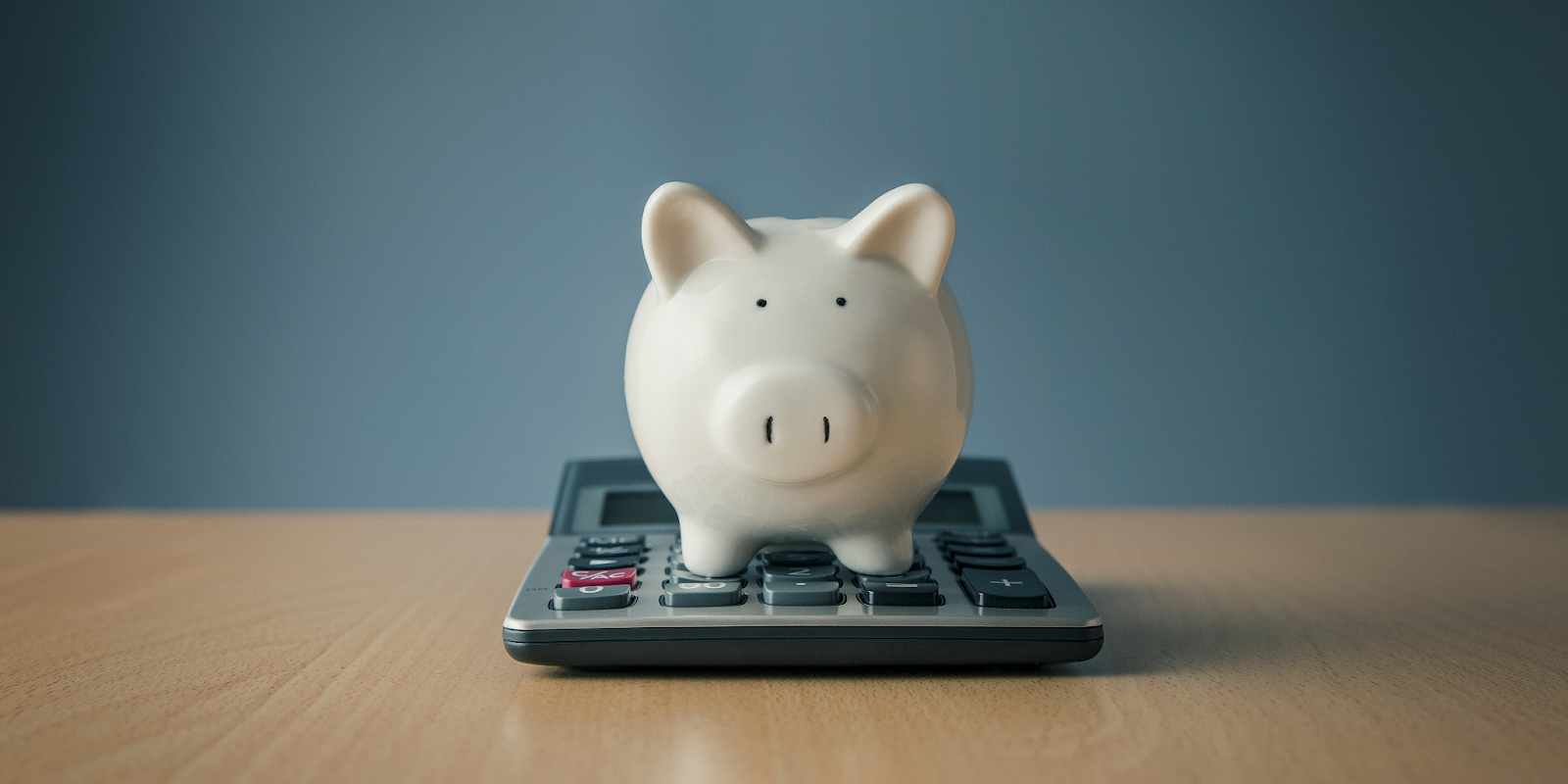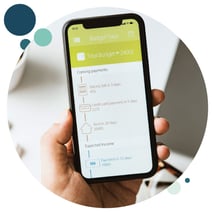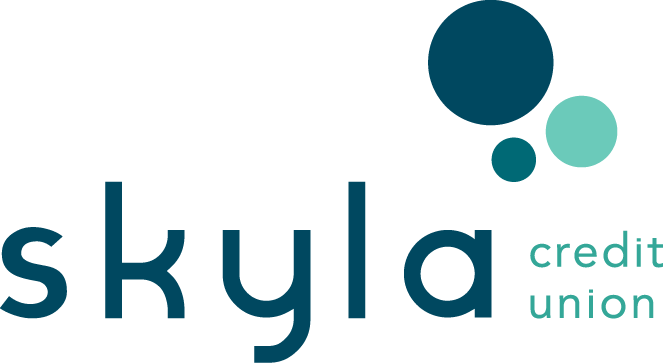How to Get Back on Track With My Finances?

Be honest - how many times have you been in this situation: You take the time to sit down and really hammer out your budget. You know how much money should be going towards groceries and eating out, you’re set up to save a little more each month, and you feel good about your new system.

But then a friend invites you out to dinner, or your dog needs to go to the vet, or the electric bill got a little higher, or your favorite store is having a sale, or… or… or… Suddenly, your perfect monthly budget gets thrown off, and the thought of having to go back through building your budget doesn’t sound appealing. I get it!
I’ve fallen off track with my finances enough times to know that it happens and it’s something that can be fixed. Money plays a huge role in our lives, so I’m going to help explain how to get back on track (and how to stay on track) with your money to avoid this problem down the road. But if it happens again, don’t worry! You can just revisit this article, or build a new budget completely, to get back on track. Your financial situation is always going to evolve, so it’s healthy to revitalize a budget often!
Before Skyla, I was trying to figure out a financial plan to get rid of the $50,000 of debt owing to student loans, credit cards, and medical bills. It wasn’t until a light bulb went off in my head that I just created a financial plan but believe me, my plan didn't stick right away. There were many failed attempts but I'm happy to report I’ve finally created a plan that works… because, on March 2nd, I became a new homeowner thanks to these tips!
let’s whip your finances back into shape:
|
|
Before you start tackling the following steps - it’s important to understand that it’s ok to fall off track with your money. The fact that you’re here and willing to try says a lot about you. Just make sure you don’t give up on yourself and continue to look for ways to build your savings. (It doesn’t happen overnight for anyone! Except maybe Jeff Bezos or Kim Kardashian…)
 step 1: assess what went wrong
step 1: assess what went wrong
To fix your finances, you first need to know what happened for you to get off track in the first place. Take a moment and look where you are with your spending and pay close attention to what went wrong. Here are a few things to think about when identifying the problem:
- Were you following your plan and staying close to your budget?
- Was there any impulse spending? (Psst… That $6 cup of coffee at Starbucks can add up to almost $1,000 a year!)
- Were there any unexpected expenses that popped up?
QUICK TIP: It's possible to be off track with your finances because of fraudulent activity. (This is another reason why you should assess your spending!) If there's fraudulent activity on your account, contact your financial institution immediately. If you are a Sklya member, here's what'll help. |
 step 2: track all spending
step 2: track all spending
Before you go back to your budget and rework any of the kinks, track all of your spending for at least a week. This will give you an honest look at where your money is going and will help you determine what you need to adjust in your monthly budget.
There are a few tools to help you keep track of your spending:
- Good Old-Fashioned Pen and Paper.
- Online Banking: A lot of financial institutions have budgeting tools wrapped into their online banking platform. If they do, then you won’t have to go through the hassle of categorizing your spending by hand.
- Mobile Apps: Check out apps like Goodbudget or the Mint App to help you track.
It doesn’t matter how you track this spending, just make sure you do it!
QUICK TIP: To help keep your tracking top of mind, consider setting up account and transactional alerts. Then, every time you get a notification or email about your spending, you can track it. |
 step 3: rework your goals and budget
step 3: rework your goals and budget
 Once you determine what went wrong, it’s time to rework your budget. Maybe you got a little too ambitious and actually need to put more money towards your monthly grocery bill, or adding extra payments to your auto loan isn’t feasible at the moment, or maybe your short-term goal might need to be extended a bit. Whatever the tweak needs to be, it’s ok to rework!
Once you determine what went wrong, it’s time to rework your budget. Maybe you got a little too ambitious and actually need to put more money towards your monthly grocery bill, or adding extra payments to your auto loan isn’t feasible at the moment, or maybe your short-term goal might need to be extended a bit. Whatever the tweak needs to be, it’s ok to rework!
REWRITE YOUR LIST OF MONTHLY EXPENSES.
You’re probably thinking to yourself: “Duh, you should have already been doing this.” But let me explain... Writing down all your monthly expenses can help identify and eliminate unnecessary expenses.
Today, there are so many apps that can automate this process and help you keep track of your expenses for you. There’s Goodbudget, a budget tracker that helps you save money using an envelope system. You can also use the Mint App where you’ll know how much you’ll spend and it’s free.
QUICK TIP: When using budgeting apps or any other type of financial apps, protect your personal data by keeping your phone secure. Millions of people fall victim to cybercrimes. |
revisit yOUR GOALS
 Are your goals still the same as the last time you created your budget? Maybe you already paid off your credit card balance totally or - on the flipside - the balance has gotten even higher, so you want to put a focus on paying it down…
Are your goals still the same as the last time you created your budget? Maybe you already paid off your credit card balance totally or - on the flipside - the balance has gotten even higher, so you want to put a focus on paying it down…
Write down your goals list and make sure you set specific dollar amounts to ensure you’re planning appropriately. Psst... If you already have attainable goals set, check your goal dates and consider how realistic they are. Now might be the time to reprioritize your goals.
make it visible
Download this free Smart Budgeting Guide to get the 8 steps, best practices, and templates to start crafting your own plan where you can have a visual reminder of your budget, goals, and spending.
 step 4: reset auto-payments and direct deposit
step 4: reset auto-payments and direct deposit
Once you’ve written down your monthly expenses, it’s time to reset your auto payments and direct deposit. This will help determine which accounts would be used for bills, daily spending, and savings. You’re financial goals and needs must change so it’s time to rework your deposits.
Psst... If you belong to a financial institution that charges excessive fees, don’t be afraid to switch banks. There are institutions that offer free accounts which will help put money back into your pocket!
 step 5: get a budgeting assistant
step 5: get a budgeting assistant
Ok, so you’ve reworked your budget and goals, now what? Think about how you’ll track your spending to make sure it sticks. Everyone’s preferences are different, but when considering your new method of tracking, ask yourself:
- How was I tracking it before?
- Ok, be honest… was I actually tracking everything?
- What worked well with that method?

- What didn’t work well with that method?
- How can I keep my budgeting top of mind? (Psst… think about setting up transactional alerts or calendar reminders to check on your budget!)
If you’re techy and looking for an app to help, check out Goodbudget or Mint.
 (bonus!) how to cut down your monthly payments
(bonus!) how to cut down your monthly payments
Unfortunately, getting rid of loan payments completely isn’t an option, but there are ways to lower your monthly payment and find some extra cash for your budget!
- Auto Refinancing: If you have an auto loan, now might be a good time to consider refinancing it for a lower rate or longer term. Why does it matter? This means lower monthly payments and less total interest you'll pay over the life of your loan. Learn More >
- Mortgage Refinancing: Refinancing an existing mortgage to lower your interest rate and/ or change the term can help lower your monthly payments. A good rule of thumb? If the total closing costs (roughly 3% of the new loan amount) can be made up in your monthly payment savings within the first 12 – 24 months of the new refi, then go for it. Learn More >
- Credit Card Balance Transfer: If you’re tired of multiple due dates, varying interest rates, or just the number of loans you're juggling, a credit card balance transfer might be the right fit for you. Why does that help? You won't be accruing additional interest on the transferred balances, making your payments more impactful and giving you time to create that debt paydown plan. Learn More >
- Skip-A-Pay: If your financial institution offers it, you may be eligible for their Skip-A-Pay program. Use the money to catch up on other loans and bills or add a little extra cushion to your savings. Learn More >
- Insurance Shopping: Shopping around on your car or property insurance can save you more! Do some research, request a few quotes, and snag the best rates. Learn More >
Psst... Need help paying down debt? Check out the 7 Steps to Paying Down Debt and snag a freebie to help you get started!
extra tips to help you stay on track
Looking for a few extra tips & tricks? Here are some things you can do to avoid future financial hiccups:
- Open a Checking Account: Consider opening your first (or an additional) checking account for your budget so you don't dip into your savings account to make monthly payments. Many financial institutions, like Skyla, offer checking accounts with no fee. You can check out all of Skyla's Checking options here.
- Use the Envelope Method: This is an old-school method where you have actual envelopes with cash in each. One envelope could be for “Groceries,” one for “Eating Out,” one for “Entertainment…” you name it. You’ll put the exact amount of budgeted cash in each category’s envelope and then you only use that cash for that expense. Here’s the kicker – once you’re out, you’re out!
QUICK TIP: If you struggle with credit card debt and don't want to put any more charges on your card, this would be an excellent system for you! For some extra tips and tools, check out our article on Paying Off Debt. |
- Freeze Your Credit Card: If you want to hang onto your credit card, but don’t trust yourself not to use it on little (or big) impulses without going back into debt, you can always freeze your card. This way, you’ll still have that line of credit available for emergencies or big expenses. However, you’ll have to actively unfreeze it, which will provide you the time and opportunity to really think through the purchase.
- Don't Give Up on Yourself: This is key! Sticking to a budget and maintaining financial discipline is not easy. It's a challenge, but the harder you work to stick to your financial goals, the better you'll feel.
ready to whip those finances back into shape?
As I mentioned above, it’s never a bad thing to have to rework your existing budget. Your finances will always be changing, and it’s healthy to revisit and rework your financial plan to fit your current needs. you got this!
Download the Smart Budgeting Guide for the free templates to help keep you on track. And, make sure you make it a habit to revise your budgeting plan often.
As Content Strategist behind the Learning & Guidance Center, Yanna loves showing just how doable finance can be. Whether it’s simple tips, step-by-step guides, or comparison charts, she’s passionate about helping readers take charge and reach financial freedom with confidence
more resources for your financial journey
How to Talk About Money with Your Partner
Don't know where to begin when talking money with your partner? Here are successful tips on how to get started so you can start the journey of making financial decisions together.
9 min. read
The Basics of Building Your Budget
Looking for budgeting tips to accomplish your financial goals? Access our savings tools to help you become one step closer to achieving financial success.
8 min. read




